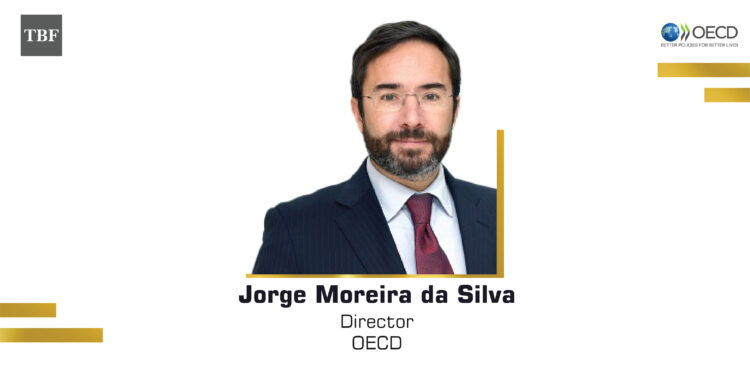The OECD Centre for Educational Research and Innovation (CERI) contributes to supporting participating OECD Members and Partners in their efforts to achieve high quality lifelong learning for all, which contributes to personal development, sustainable economic growth and social cohesion. CERI work adds unique value to countries grappling with the challenges of achieving better education outcomes by taking a forward-looking approach and helping them move towards the frontier(s) of education while capitalising on the richness of international comparisons and experience that the OECD offers. CERI’s objectives are to: provide and promote international comparative research, innovation and key indicators explore forward-looking and innovative approaches to education and learning facilitate bridges between educational research, innovation and policy development. CERI is part of the OECD Directorate for Education and Skills. OECD Centre for Educational Research and Innovation.
The Centre for Educational Research and Innovation (CERI) provides and promotes international comparative research, innovation and key indicators, explores forward-looking and innovative approaches to education and learning, and facilitates bridges between educational research, innovation and policy development.
What does CERI do?
CERI draws together international research and expertise, identifies effective practices across different countries and develops new approaches across a range of topics towards the frontiers of education policies, practices and outcomes.
CERI’s work includes:
Mapping what futures could look like Developing conceptual or analytical frameworks for emerging challenges Fostering, supporting and evaluating innovation in policies and practices Providing a “test-bed” for developing: New tools and techniques to support better education policies and practices New assessment instruments Approaches to building education system capacity Indicators to monitor progress Stimulating knowledge creation, diffusion and use Measuring and monitoring at system level.
Measuring Innovation in Education Why it matters
Knowing whether – and how much – educational practices change at the system level helps to target policy and school interventions that improve educational outcomes. Shaping a culture of innovation and improvement also requires an understanding of what drives innovation, from using data and technology, to investing in educational R&D, to adopting learning organisation models. What it involves Identifying drivers of innovation in education as compared to other sectors Identifying meaningful innovations across educational systems Constructing metrics to examine the relationship between educational innovation and educational outcomes
Trends Shaping Education
Why it matters Preparing for the future means taking a careful look at how the world is changing. Reflecting on alternative futures helps anticipate and strategically plan for potential shocks and surprises. What it involves Highlighting key economic, social, demographic and technological megatrends shaping our societies and the potential impact of these trends on education. Scanning the horizon for emerging phenomena, using the Four OECD Scenarios for the Future of Schooling to explore the changes that appear most probable as well as those that we are not expecting Helping countries to develop robust strategies for their education systems to meet future challenges through Future Labs and other interactive workshops.
Jorge Moreira da Silva, Director
From 2013 to 2015, he was Portugal’s Minister of Environment, Energy and Spatial Planning. Prior to this Ministerial position, Mr. Moreira da Silva served as Senior Environmental Finance Advisor and Programme Manager on Climate Change Innovative Finance at UNDP’s Bureau for Development Policy (2009-2012); Senior Advisor to the President of Portugal (2006-2009); Secretary of State for Science and Higher Education (2003-2004); Secretary of State for Environment and Spatial Planning (2004-2005); Member of the Portuguese Parliament (1995-99; 2005-2006; 2015-16); and Member of the European Parliament (1999-2003). As Member of the European Parliament, he was the Standing Draftsman on climate change and he authored the Report and the political agreement on the EU GHG Emissions Trading Directive in 2003.
He has served as Visiting Full Professor at the Lisbon University and Founder and Chairman, since 2011, of the Lisbon-based think-tank Platform for a Sustainable Growth. He also served as First Vice-President of the Executive Board of Partido Social Democrata, PSD (2010-2016).
Mr. Moreira da Silva graduated from the University of Porto with a degree in Electrical and Computer Engineering and holds a postgraduate degree in Senior Management from the AESE-IESE Business School, Navarra University, Spain.
As Director of the Development Co-operation Directorate (DCD), Mr. Moreira da Silva plays a key role in positioning the OECD’s work on development co-operation at the leading edge. He supports the work of the Development Assistance Committee (DAC) and collaborates closely with other components of the OECD’s Development Cluster to strengthen the Organisation’s contribution to the international governance architecture, as well as to OECD-wide initiatives such as NAEC, Inclusive Growth, and work in support of the Sustainable Development Goals (SDGs).










